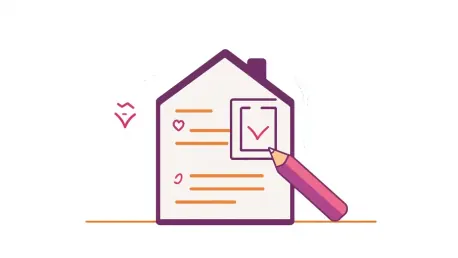Electronic signatures (eSignatures) are revolutionizing the real estate industry by enhancing transaction speed, security, and efficiency. Legal frameworks such as the Electronic Signatures in Global and National Commerce (E-SIGN) Act and the Uniform Electronic Transactions Act (UETA) have validated the use of eSignatures, making them reliable for various real estate transactions, including sales agreements, lease contracts, and mortgage documentation. With these advancements, eSignatures have opened a new realm of possibilities for real estate professionals, allowing them to operate seamlessly in a digital environment while remaining compliant with stringent legal standards.
The COVID-19 pandemic accelerated the adoption of eSignatures, enabling real estate transactions to proceed uninterrupted despite social distancing measures. This unexpected shift compelled the industry to re-evaluate traditional methods, pushing the rapid integration of digital solutions that many had previously been hesitant to adopt. As a result, digital signatures have become indispensable for conducting remote transactions, automating contracts, and facilitating international real estate deals. The efficiency, security, and cost-saving benefits offered by eSignatures have made them a permanent fixture in the modern real estate landscape.
The Growth of eSignatures in Real Estate
Faster Closings and Improved Client Experience
eSignatures eliminate the necessity for physical meetings and paper-based approvals, significantly reducing the time required to close deals. This digital transformation allows buyers and sellers to sign documents securely from any location, thereby enhancing convenience and satisfaction. The ability to complete real estate transactions remotely has proven invaluable, especially in a fast-paced market where time is often of the essence. Clients appreciate the streamlined, user-friendly experience, which not only speeds up the process but also reduces the stress traditionally associated with property transactions.
Buyers and sellers no longer need to navigate scheduling conflicts, travel for in-person signings, or rely on the postal system to exchange documents. This shift not only expedites transactions but also improves the overall client experience by making the process more efficient and accessible. Real estate professionals benefit as well, finding their workloads lightened by the reduction in administrative tasks and the elimination of unnecessary delays. All parties involved gain from the increased transparency and reliability that eSignatures bring to the table, fostering greater trust and collaboration.
Reduced Paperwork and Enhanced Security
The adoption of eSignatures leads to a considerable reduction in the need for printing, mailing, and storage, thereby cutting costs and minimizing environmental impact. Advanced security measures accompanying these digital signatures, such as audit trails, encryption, and multi-factor authentication (MFA), help prevent fraud and ensure the integrity of documents. These features offer peace of mind to all parties involved, knowing that their transactions are secure and compliant with legal standards. This digital evolution allows real estate firms to prioritize sustainability without compromising on security or efficiency.
Real estate firms can store documents electronically, ensuring easy retrieval and eliminating the need for physical storage solutions that can be costly and cumbersome. Moreover, the enhanced security provided by digital solutions addresses the growing concerns related to data breaches and identity theft. Audit trails track every step of the signing process, providing an irrefutable record of actions taken for each transaction, while encryption protects data from unauthorized access. Multi-factor authentication adds an extra layer of security, verifying signers’ identities and maintaining the integrity of the transaction.
Enhancements Provided by eSign APIs in Real Estate Transactions
End-to-End Digital Transactions
Modern eSign APIs, such as Certinal eSign API, offer robust functionalities that enable real estate professionals to embed secure signing abilities directly into their digital platforms. With Certinal’s API, users can send, sign, and manage real estate documents within their pre-existing software environments, eliminating manual interferences. This seamless integration ensures that transactions are completed efficiently and without unnecessary delays. By embedding signing functionalities into existing workflows, real estate firms can maintain their operational consistency while benefiting from advanced digital capabilities.
The ability to handle end-to-end digital transactions within familiar platforms like property management systems, CRMs, and legal document management software enhances workflow efficiency. Real estate professionals can automate document generation, routing, and signing processes, reducing the need for manual interventions and minimizing the potential for human error. The seamless nature of this integration facilitates better collaboration among stakeholders, as documents move swiftly through the necessary approval channels without the risk of becoming lost or delayed.
Secure and Compliant eSigning
Certinal’s eSign API ensures full compliance with E-SIGN Act, UETA, and other global regulations, using advanced encryption (AES-256), tamper-proof audit trails, and role-based access controls. These features guarantee that all electronic signatures are legally binding and secure, providing a reliable solution for real estate professionals who need to ensure compliance and operational efficiency. By leveraging modern security protocols, Certinal not only protects the integrity of documents but also enhances its credibility as a trusted digital transaction facilitator.
Advanced encryption mechanisms safeguard sensitive information from unauthorized access, while tamper-proof audit trails provide a detailed record of every action taken during the signing process. Role-based access controls restrict document access to authorized individuals, ensuring that sensitive information remains secure. This comprehensive approach to security and compliance addresses the legal and regulatory demands of the real estate industry, making Certinal an invaluable tool for firms looking to transition to digital operations without compromising on legal standards.
Choosing the Best eSignature Solution for Real Estate
Compliance and Legal Validity
When selecting an eSignature solution for real estate transactions, professionals should consider several critical factors. The platform must adhere to E-SIGN Act, UETA, and other global regulations to ensure that electronic signatures are legally equivalent to handwritten signatures. This compliance is crucial for maintaining the validity and enforceability of signed documents. Therefore, a compliant eSignature solution like Certinal offers peace of mind to real estate professionals, who can rest assured that their digital transactions will withstand legal scrutiny.
Ensuring legal validity involves more than just adhering to regulations; it also requires implementing features that guarantee the authenticity and integrity of signed documents. Penetration of eSignatures into the real estate market highlights the importance of selecting a solution that not only meets regulatory standards but also offers advanced security features. Certinal’s API integrates comprehensive legal and security measures, making it an ideal choice for real estate transactions where legal compliance is paramount.
API and Integration Capabilities
A robust API allows seamless integration with CRMs, property management software, and legal platforms. This capability is essential for real estate firms looking to streamline their workflows and enhance efficiency. Certinal’s API-first approach facilitates effortless integration with platforms like Salesforce, HubSpot, and major ERP systems, ensuring that all transactions are handled smoothly and without disruption. By integrating eSignatures directly into existing systems, real estate firms can leverage the power of digital solutions without encountering significant operational disruptions.
Effective API integration minimizes the need for additional training and resources, allowing real estate professionals to continue using their preferred tools while benefiting from enhanced digital capabilities. Automated workflows ensure that documents are sent, signed, and stored efficiently, reducing the potential for errors and delays. The ability to manage transactions within familiar software environments enhances user experience, promotes adoption, and allows firms to maximize the return on their technology investments.
Certinal as a Leading Alternative for Real Estate eSignatures
Advanced Security Measures
Certinal distinguishes itself as the optimal eSignature solution for real estate by adhering to a compliance-first approach, offering powerful API integration, and maintaining cost-effective pricing structures. Unlike older systems like DocuSign, Certinal provides unlimited signatures per document, seamless API-driven automation, and enterprise-grade security. Encryption, tamper-proof audit trails, and MFA safeguard sensitive documents, ensuring that all transactions are secure and compliant. By focusing on these critical areas, Certinal has positioned itself as a leading alternative to traditional eSignature solutions.
The platform’s commitment to security extends beyond basic encryption. Certinal utilizes blockchain-backed audit trails to provide enhanced transparency and traceability. This ensures that every action taken during the signing process is accurately recorded and can be verified if needed. Such robust security measures are essential for real estate transactions, where the stakes are high, and the potential for fraud or error can have significant financial and legal repercussions. Certinal’s dedication to security and compliance offers unparalleled protection for all parties involved.
User Experience and Mobile Accessibility
A straightforward, intuitive signing process accessible from desktops and mobile devices promotes user adoption. Certinal’s user-friendly interface enables a smooth transition to digital transactions without disrupting existing workflows. This ease of use is critical for encouraging widespread adoption among real estate professionals who may be hesitant to move away from traditional paper-based methods. By prioritizing user experience, Certinal ensures that all users, regardless of their technological proficiency, can benefit from its advanced eSignature capabilities.
The platform’s mobile accessibility further enhances its appeal, allowing users to sign documents from anywhere, at any time. This flexibility is particularly valuable in the real estate industry, where transactions often require swift action and numerous parties may be involved. Certinal’s mobile-friendly design ensures that all stakeholders can participate in the signing process without unnecessary delays or complications. The combination of ease of use and robust functionality makes Certinal an ideal choice for real estate firms seeking to modernize their operations.
Addressing Challenges in Real Estate eSignature Adoption
Resistance to Digital Transformation
Some professionals hesitate due to familiarity with paper-based methods and perceived complexity. Certinal’s user-friendly interface enables a smooth transition without disrupting existing workflows. By providing a straightforward and intuitive signing process, Certinal helps overcome resistance to digital transformation, making it easier for real estate professionals to adopt eSignatures. The platform’s design prioritizes ease of use, ensuring that even those with limited technological experience can quickly become proficient in using it for their transactions.
Educational resources and customer support further assist in easing the transition. Certinal provides comprehensive training materials and responsive customer service to address any questions or concerns that users may have. This support system helps build confidence among real estate professionals, allowing them to embrace digital solutions without fear of disruption or inefficiencies. By addressing resistance head-on and offering robust support, Certinal facilitates the widespread adoption of eSignatures within the real estate industry.
Legal and Security Concerns
Fraudulent transactions and identity theft are significant concerns. Certinal’s blockchain-backed audit trails ensure document integrity and verify signers’ identities through biometric authentication and government-issued IDs. These advanced security measures address legal and security concerns, providing a reliable and secure solution for real estate transactions. The use of blockchain technology enhances the transparency and traceability of transactions, making it nearly impossible for fraudulent activities to go undetected.
Biometric authentication methods, such as facial recognition and fingerprint scanning, provide additional layers of security, ensuring that only authorized individuals can sign documents. Government-issued IDs are used to verify identities, further preventing fraudulent activities. Certinal’s comprehensive approach to security not only protects the integrity of transactions but also builds trust among users, knowing that their sensitive information is well-protected. By addressing these critical legal and security concerns, Certinal positions itself as a trustworthy solution for modern real estate transactions.
Case Study: Improved Deal Closures with Certinal eSign API
Achieving Faster Closings and Reducing Errors
A U.S.-based real estate firm faced delays in closings due to manual paperwork and disjointed document approvals. By integrating Certinal’s eSign API with their CRM and transaction management system, the firm achieved a remarkable reduction in contract signing time from 7 days to just 24 hours. This significant improvement was primarily due to the elimination of manual processing and the streamlined nature of digital transactions. The firm was able to conduct transactions remotely, allowing them to maintain business continuity despite the challenges posed by the pandemic.
Additionally, the integration of Certinal’s eSign API led to the elimination of paperwork errors through automated contract validation. By automating the document generation and signing process, the firm was able to minimize the risk of human error and ensure that all necessary information was correctly captured and processed. This not only enhanced operational efficiency but also improved client satisfaction by providing a more reliable and quicker transaction experience.
Future Trends in eSignatures for Real Estate
AI-Powered Document Automation
The future of eSignatures in real estate is set to include AI-powered document automation, which automatically populates contract fields to reduce errors and expedite closings. This technology uses machine learning algorithms to understand the content and context of documents, enabling more accurate and efficient data entry. By automating these processes, real estate professionals can focus on higher-level tasks, knowing that the routine aspects of transaction management are handled swiftly and accurately.
Blockchain-Enabled Smart Contracts and Mobile-First Signing Experiences
Blockchain-enabled smart contracts will enhance transparency, reduce fraud, and automate contract execution. These self-executing contracts automatically enforce the terms and conditions agreed upon by the parties involved, ensuring compliance and reducing the need for intermediary oversight. This technology not only streamlines transactions but also provides an immutable record of all contract activities, further enhancing the trust and reliability of real estate deals. Mobile-first signing experiences will also become more prevalent, offering instantaneous contract execution on smartphones and enhancing the flexibility and convenience of eSignatures.
Biometric and digital identity verification processes will integrate facial recognition and fingerprint scanning, offering an added security layer and ensuring that only verified individuals can sign documents. AI-powered scanning tools will ensure that all necessary clauses are included in contracts before signing, reducing the risks of disputes and ensuring compliance with legal standards. These cutting-edge technologies will continue to evolve, shaping the future of real estate transactions and pushing the industry towards a fully digital, automated, and secure era.
Conclusion: Certinal as the Preferred eSign API for Real Estate
Electronic signatures (eSignatures) are transforming the real estate industry by boosting transaction speed, security, and efficiency. Legal frameworks like the Electronic Signatures in Global and National Commerce (E-SIGN) Act and the Uniform Electronic Transactions Act (UETA) have legitimized eSignatures, ensuring their reliability for various real estate transactions, including sales agreements, lease contracts, and mortgage documentation. These advancements have enabled real estate professionals to operate smoothly in a digital environment while adhering to strict legal standards.
The COVID-19 pandemic accelerated the adoption of eSignatures, allowing real estate transactions to continue despite social distancing measures. This unexpected shift prompted the industry to rethink traditional methods, spurring the rapid incorporation of digital solutions that many were previously reluctant to embrace. Consequently, digital signatures have become essential for conducting remote transactions, automating contracts, and handling international real estate deals. The efficiency, security, and cost-saving benefits provided by eSignatures have made them a staple in the contemporary real estate landscape.









